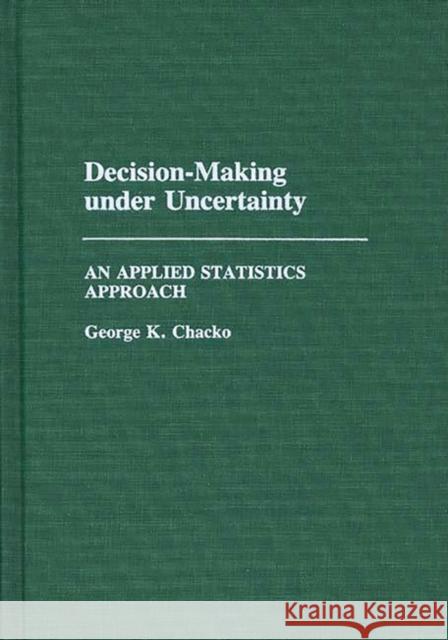Decision-Making Under Uncertainty: An Applied Statistics Approach » książka
Decision-Making Under Uncertainty: An Applied Statistics Approach
ISBN-13: 9780275935696 / Angielski / Twarda / 1990 / 272 str.
In real-life decision-making situations it is necessary to make decisions with incomplete information, for oftentimes uncertain results. In "Decision-Making Under Uncertainty," Dr. Chacko applies his years of statistical research and experience to the analysis of twenty-four real-life decision-making situations, both those with few data points (eg: Cuban Missile Crisis), and many data points (eg: aspirin for heart attack prevention). These situations encompass decision-making in a variety of business, social and political, physical and biological, and military environments. Though different, all of these have one characteristic in common: their outcomes are uncertain/unkown, and unknowable. Chacko Demonstrates how the decision-maker can reduce uncertainty by choosing probable outcomes using the statistical methods he introduces.
This detailed volume develops standard statistical concepts (t, x2, normal distribution, ANOVA), and the less familiar concepts (logical probability, subjective probability, Bayesian Inference, Penalty for Non-Fulfillment, Bluff-Threats Matrix, etc.). Chacko also offers a thorough discussion of the underlying theoretical principles. The end of each chapter contains a set of questions, three quarters of which focus on concepts, formulation, conclusion, resource commitments, and caveats; only one quarter with computations. Ideal for the practitioner, the work is also designed to serve as the primary text for graduate or advanced undergraduate courses in statistics and decision science.











